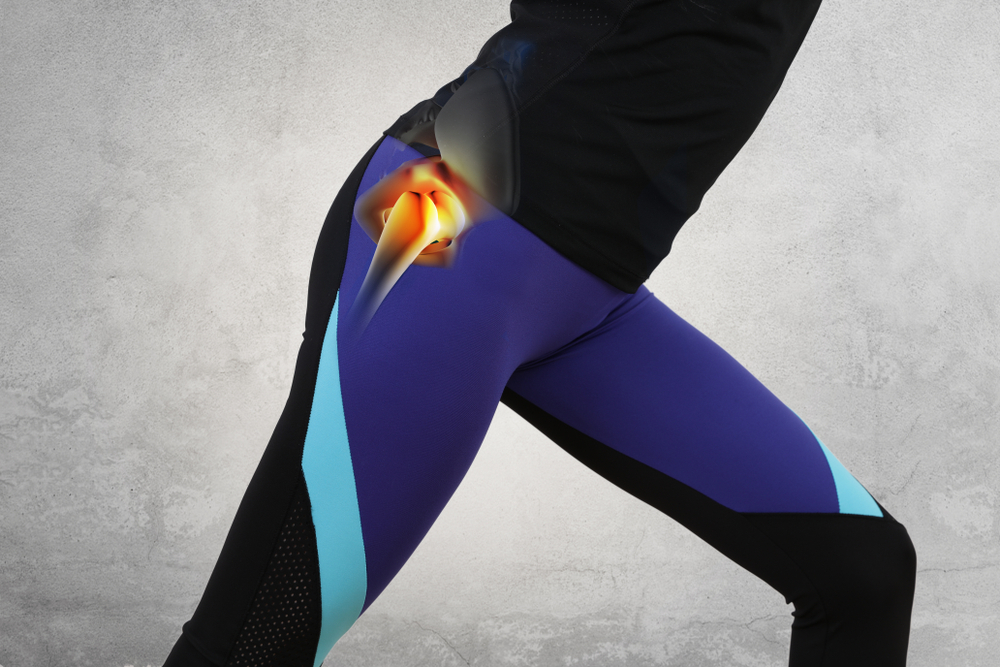When properties have hazards on them, such as unattended spills, cluttered walkways, or crumbling staircases, visitors can sustain painful hip injuries in slip and fall accidents. If you suffered a hip injury in a preventable slip and fall on someone else’s premises, a Colorado Springs personal injury lawyer can help you seek fair compensation for your losses.
What Are the Most Common Types of Hip Injuries After a Slip and Fall Accident?
Slip and fall accidents are a common cause of hip injuries. Here are five of the most common hip injuries from falls, slips, and trips:
- Bone fractures – If a slip and fall victim lands hard enough, the impact can fracture the pelvis or the femur. This type of injury may require surgical treatment or an artificial hip replacement.
- Bursitis – Bursitis is a type of inflammation that occurs due to the swelling of bursae, fluid-filled pads that cushion the hip joint. Bursitis is frequently caused by repetitive motion strain, but it can also result from blunt-force trauma.
- Dislocation injuries – In some cases, a slip and fall can jolt the head of the femur out of the ball-and-socket joint of the hip. Dislocation can result in severe pain, loss of sensation in the lower leg, and inability to bear weight on the leg.
- Hip pointer injuries – A contusion to the soft tissues and bone structures of the outermost edge of the pelvis is commonly known as a “hip pointer.” Even minor slip and falls on the hip can result in this painful type of bruising.
- Soft tissue injuries – Sprains, strains, and tears to soft tissue structures surrounding the hip frequently occur during slip and falls. One common injury known as a labral tear involves trauma to the cartilage enveloping the hip socket.
What Are the Symptoms of a Hip Injury?
Different hip injuries have different symptoms, but some common signs of many hip injuries include:
- Stiffness or limping in the affected hip or leg
- Difficulty standing or walking after a slip and fall
- Intense pain in the hip or groin
- Lack of ability to bear weight on the affected leg or side of the hip
- Discoloration, bruising, or swelling around the affected hip
- A shortened or unnaturally angled leg on the side of the injury
How Do You Know If a Hip Injury Is Serious?
Many hip injuries from falling can heal at home with rest and over-the-counter pain medication. However, there are certain signs that a hip injury is more serious. You likely require medical attention if:
- You cannot bear weight on your affected leg
- Your hip joint seems deformed
- You cannot move your affected leg or hip
- You experience sudden swelling, intense pain, or signs of possible infection
Treatment After a Hip Injury
Depending on the nature and severity of your slip and fall hip injury, you may require one or more of the following treatments:
- Over-the-counter or prescription pain medication
- Anti-inflammatories such as corticosteroids
- Rest, ice, compression, and elevation (RICE treatment)
- Warm compresses, baths, or showers
- Physical therapy and low-impact exercise
- Surgery, up to and including total hip replacement (arthroplasty)
How Jeffrey Scott Lasswell Can Help With Your Hip Injuries
If you were injured in a Colorado Spring slip and fall accident, I can help you stand up to big insurance companies and demand fair compensation for your hip injuries. I have a strong reputation for providing effective legal help and a history of favorable case results to back it up. Since I was an insurance defense attorney, I also know firsthand how they operate. I can leverage this insider knowledge to help advance your case.
Contact Jeffrey Scott Lasswell, PC today to learn more about your legal options in a free consultation.
For 18 years, I have helped injury victims in Southern Colorado. I handle plaintiffs’ personal injury cases, such as slip and fall accidents and car crashes. My focus on civil litigation and personal injury works to my clients’ advantage, as there is a lot to know and a lot of subtleties in the law. Take slip and fall accidents, for example. There are different categories of how victims are classified when it comes to being hurt on someone else’s property. I know what facts are important and how to prove what is needed to be successful with your case.


